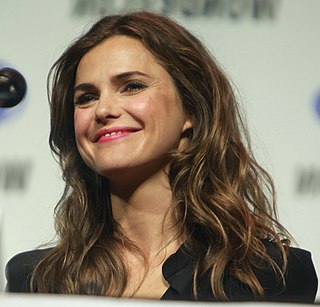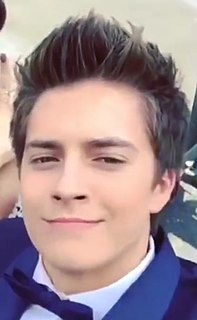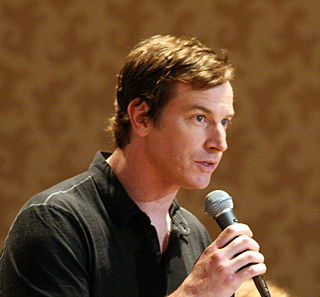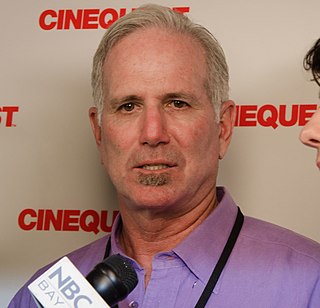A Quote by Keri Russell
The thing I loved about this movie [Waitress] when I read the script was that it was exactly the kind of film that I love to watch. It's not just funny, it's serious, just when you need it to be and true to life in a way.
Related Quotes
I read the script for 'Somnia' when I was filming 'Oculus,' and I remember calling my manager going, 'I really need to do this movie,' and he's like, 'How about you finish this one first and then you see it?' I was like, 'I don't need to. I don't need to. You need to read this. I need to do this movie. The script is very good.'
There's a way of thinking that comes with being an editor that is incredibly useful on the set. It's not just a vocabulary thing or a right-to-left thing or script supervisor stuff. It's a way of thinking about the film and the shots and the way they fit together, what you need and what you don't need, and what you can get away with if you have to.
I just do little jokes all the time and people think I'm serious. I know exactly who Gordon Ramsay is, I know exactly who Gordon Brown is... I just say jokes but they think I'm serious which I think is funny and I think I kind of play up the image sometimes because - whatever - it's just entertainment.
On 'Lab Rats,' I read the script probably three or four times before we ever even do a table read because I want to be completely prepared. And I want to know exactly which beats I have to hit and where I need to make something comical. Some lines need a little more than others do just to get the point across, to get the joke to be funny.
Cinematography was incredibly foreign to me, so I read as much as I could about it. Once I figured out that it was just photography with a set shutter speed, I got some slide film and I just went about storyboarding the script and taking snapshots. I took a ton of time doing it just to make sure I knew exactly what I was doing. By the end of it I knew what the film was going to look like - my exposure and the composition and everything. I wasn't scared of cinematography anymore.
I loved Rushmore. I loved the script. I mean, that is what drew me to it, just the actual piece of literature the script is. But I never thought in a million years that anyone would see it or respond to it. It was an absolute joy that it was so loved and continues to be. The same with The Sixth Sense. I thought, "No one's going to watch this. Bruce Willis hasn't got a gun. There's no shagging. Lovely story, sweet and profound about loss and death, but no one's going to watch this."
Normally my process is to sit in a room and read a script and talk about it and ask questions and just create a dialogue. That goes all the way through shooting. All kinds of thoughts and ideas can find their way in there. As long as you're all on - We're just all trying to tell the story so my job as a director is just to find out what this film wants to be based on, it's just words on a page at some point but then it just needs to go to some level of believable storytelling. I'm discovering the film as I make it, to some degree.
I didn't even think about it when I read the script and then shooting their movie and someone was like "boy, press is going to be fun". And I didn't really know what they were talking about because to me it's just a film shows it as an extremely viable option which is obviously the most important thing for young individuals.
Ethan [Hawke] just - they got along great. He got to act with a dog, for real, and it felt like Jumpy was acting with him. It was a surreal thing to watch. When you watch the movie [Valley of Violence], you just kind of accept it. But if you do think about how we show - there's a dog and a movie star interacting - and you buy it. That's crazy.


































